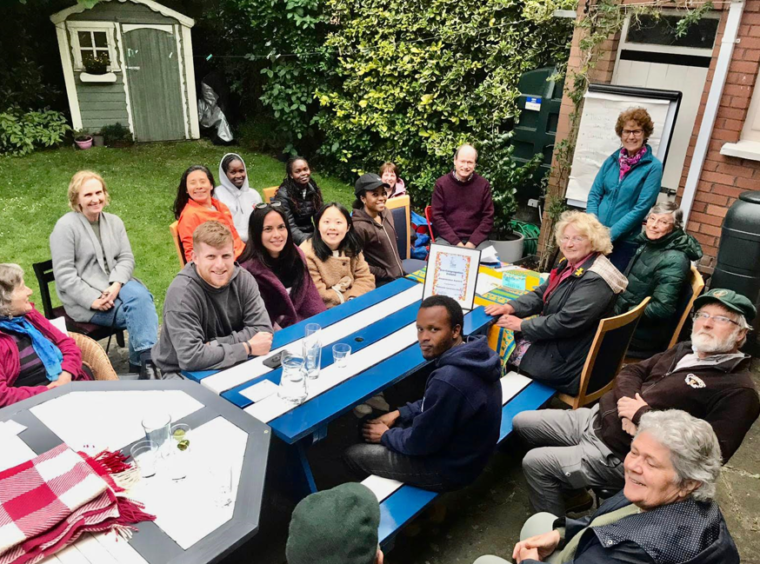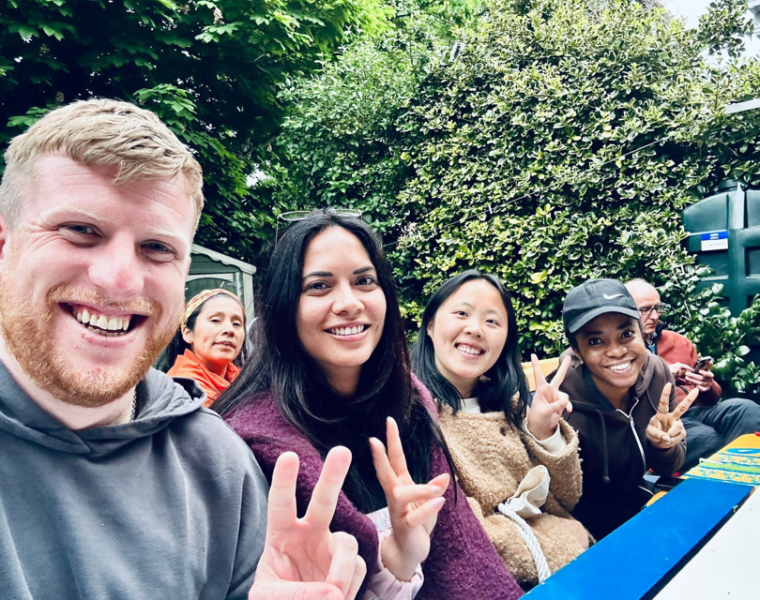
Finding Hope on a Summer Evening from Maureen Rowan:
At Methodist Centenary, we have a group called The Sky’s the Limit who meet monthly to discuss broad social, cultural, political, ethical and economic issues. As part of our Eco Congregation commitment, we include at least one session on climate change each year. The title for our recent session was The Climate Crisis: Sustaining Hope and Realism.
It fell to me to lead the evening and I approached it with some trepidation. Realism would be easy to cover, but hope seemed more difficult to find. As Christians we are called to have faith in God’s promises, but human actions can have serious consequences if they are not in accordance with God’s purpose in creation and redemption.
As I reviewed recent data, so much seemed to point to a continuing pattern of destructive human action. The Intergovernmental Panel on Climate Change Synthesis Report, March 2023, referred to “code red” for humanity with CO2 concentration at its highest level in two million years and sea levels rising at their fastest rate in 3,000 years. The World Meteorological Organisation annual report predicted that global temperatures are likely to surge to record levels in the next five years, fuelled by heat-trapping greenhouse gases combined with a naturally occurring El Niño event. Meanwhile, The Society of the Irish Motor Industry figures report that over 50% of new cars registered in 2022 were SUVs. I am no expert on cars but as I Googled deeper I found that, on average, SUVs consume around 20% more oil than an average medium non-SUV car, and that the 330m Sports Utility Vehicles globally produced emissions equivalent to the UK and Germany last year. My son told me about the activist group Tyre Extinguishers who are deflating the tyres of SUVs in cities in Europe. I thanked him but felt Methodist Centenary Eco Congregation was hardly that radical yet.
Even looking the less dramatic evidence of realism in our own congregation was challenging. Thanks to the careful management of church resources over the years, funds were available for a major refurbishment. Ideally this would include solar panels, a heat pump and a new entrance area that would encourage the local community to see our the eco congregation commitment reflected in the buildings. But the roofs were leaking, there was water ingress in the walls and insulation was needed to reduce spiralling energy costs. Heating and electricity from sustainable sources would have to wait for another round of funds, yet to be found.
So my search for hope continued. It came through the younger generation as it often does.

Our young Church Development Worker, Brian Hickey, had been a student of Dr Kevin Hargaden and slipped me a copy of The Parish as Oasis one Sunday morning. Here at last was an antidote to my pessimism. The publication by Ciara Murphy (a Biologist) and Kevin Hargaden (a Theologian) aims to draw attention to church life that is yet thriving , even against a dark backdrop. It distinguishes between optimism, as confidence that things will turn our alright, and hope. Hope is a Christian virtue, a firm commitment to take action that contributes to things turning out all right, even if, in the end, they don’t. Amid a radical re-imagining of how the church can emerge from the dark legacy of the twentieth century, the book advocates moving from a place at the seat of power in society to, literally and metaphorically, cultivate the ground in the barren places where diversity and patient concern can replace efficiency and profitability. Central to that journey is care for the environment. Twenty ‘experiments’ are proposed for how faith communities can act in practical ways to care for their common home. A key message is that the work of care should be informed by joy rather than fear. ‘There is joy, deep and abiding satisfaction, to be found in coming to terms with your creaturehood, attending to other creatures and all of our good God’s beautiful creation. It is tragic that these fundamentally worthwhile activities now bear a burden, because, had we somehow resisted the siren calls of mindless consumerism and questioned the false gospel of efficiency, we would have found a much more flourishing life in slowly and gently appreciating all that has been provided for us……’(page 130)
So I was at last able to return to the task of preparing for our discussion group meeting with reflections to encourage sustained motivation. Many of the twenty ‘experiments’ proposed in The Parish as Oasis, reflect actions we are already taking as an eco congregation. Because we are a gathered church and have buildings that serve many community purposes, actions are not as publicly visible as they are in the pollinator friendly gardens, re-wilding and polytunnels of other churches. However, there were at least twelve of the ‘experiments’ that we could say we were implementing to some extent and could do more of. The chapters on ‘Love the Sun (Solar Panels)’ and ‘Retrofit for the Future’ remain challenges which we share with households and communities everywhere.
With cautious optimism, we decided to hold the discussion outdoors in my family’s back garden. The weather was kind and the lush May vegetation underscored the sense that all is not lost and here are gifts of nature worth fighting for. Another gift was the unexpected number and diversity of young people who turned up for the discussion. Brian, the Church Development Worker linked in with students from Kenya, Bolivia, Nigeria, China and Rapa Nui (formerly Easter Island) and they readily joined us. If we needed reminders of our responsibility to the regions most affected by climate change who have some of the lowest per capita emissions, they were right here, cheerful and ready for action.
As I dashed around to find extra cups for the refreshments afterwards, the group lingered together in the garden. The authors of The Parish as Oasis had commented that the hard part in Irish environmentalism is not the science, it is ‘agreeing on a path in response …… The only way to do that sustainably is to foster open and clear conversation.’ Despite my initial trepidation, the session had led to an intergenerational conversation in the garden, and to continuing in a spirit of hope.
